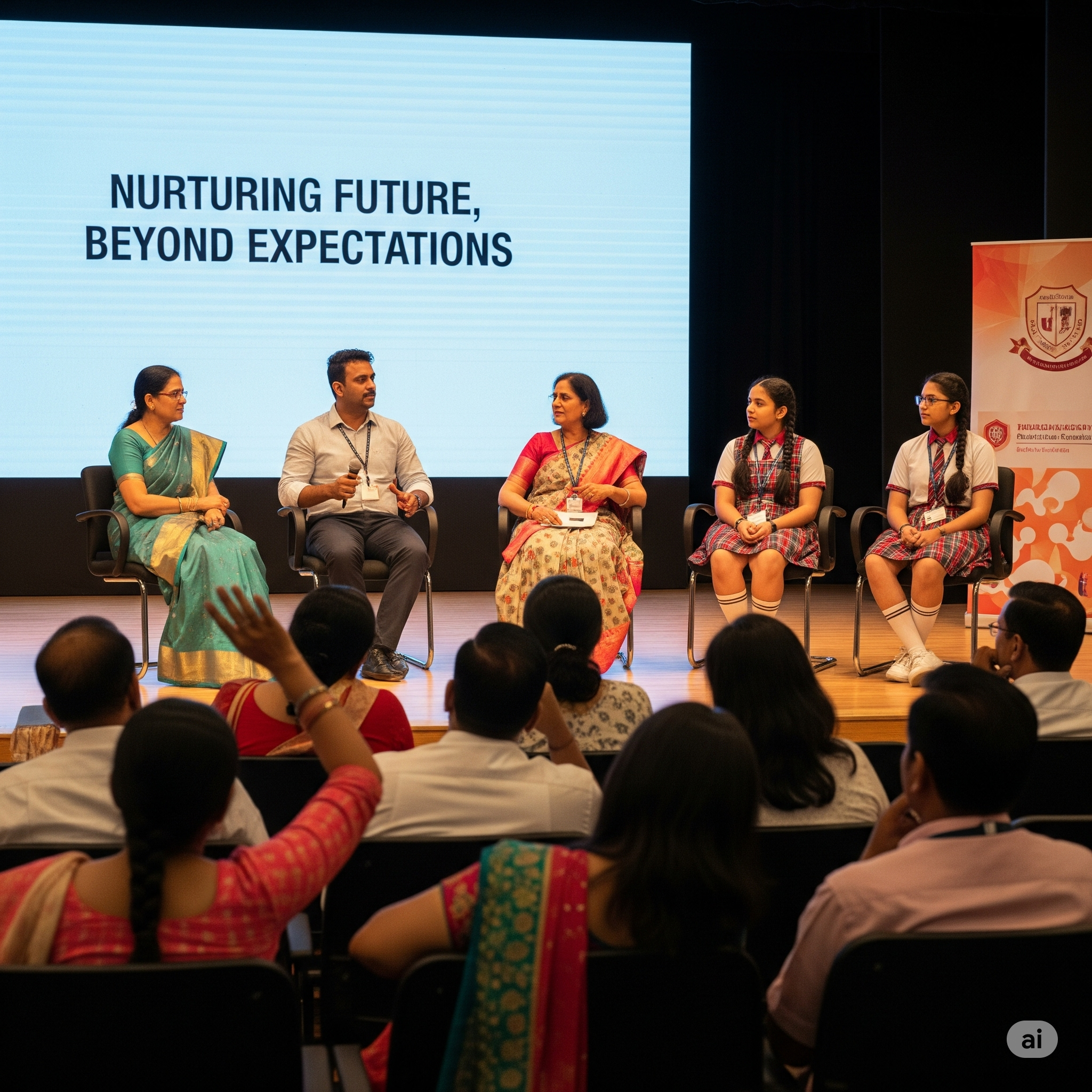
Education vs. Employment: How Schools Are Challenging Parental Expectations in India
From Marks to Mastery: Why Parents Need to Rethink Their Goals for Education
Mumbai, 2025 — In a nation where academic achievements have traditionally been equated with job security, India’s education system is experiencing a quiet but significant shift. Schools across the country are beginning to challenge long-held parental expectations that prioritize employment over holistic education. By emphasizing skills, creativity, and lifelong learning, educators are encouraging parents to see education as a journey of personal growth rather than merely a stepping stone to a lucrative career.
The Employment-Centric Mindset
For decades, Indian parents have viewed education primarily as a means to secure well-paying jobs. This mindset is deeply rooted in the country’s socio-economic realities, where financial stability is a key priority for most families. The emphasis on “safe” career paths—such as engineering, medicine, and government jobs—has driven a culture of rote learning and intense academic competition.
According to a report by the National Sample Survey Office (NSSO), 70% of Indian parents prioritize courses and degrees that guarantee immediate employability over those that foster creativity and critical thinking. This trend has resulted in a generation of students with high academic scores but limited adaptability and problem-solving skills.
The Shift Towards Holistic Education
Schools in India are now working to shift this narrative, aligning their efforts with the vision outlined in the National Education Policy (NEP) 2020. The focus is moving from exam-centric learning to nurturing well-rounded individuals who are prepared for diverse challenges.
1. Encouraging Critical Thinking Over Memorization
Schools like The Riverside School in Ahmedabad and Delhi Public School have adopted inquiry-based learning models that encourage students to question, analyze, and explore. These methods move beyond textbook answers, helping students develop critical thinking skills valued in both academic and real-world settings.
2. Integrating Life Skills into Education
Recognizing the importance of emotional intelligence, teamwork, and leadership, schools such as Shiv Nadar Schoolhave incorporated life skills training into their curriculum. Workshops on mental health, financial literacy, and conflict resolution are helping students build resilience and adaptability.
3. Promoting Interdisciplinary Learning
Institutions are moving away from rigid academic streams, allowing students to combine subjects like physics and fine arts or computer science and philosophy. This flexibility, championed by the NEP, helps students explore their interests without being constrained by traditional career expectations.
Changing Parental Expectations
Parents remain a critical stakeholder in this transformation. Schools are employing various strategies to help parents understand the long-term benefits of a holistic education:
- Workshops and Seminars: Schools like Vidya Valley School in Pune host regular sessions to educate parents about emerging career trends and the importance of 21st-century skills such as creativity, collaboration, and digital literacy.
- Career Counseling: Many institutions have introduced career counseling programs not just for students but also for parents. These sessions highlight unconventional career paths and the growing demand for skills over degrees in the job market.
- Student-Led Showcases: Schools are encouraging students to present their projects, innovations, and extracurricular achievements to parents, showcasing the value of holistic learning.
Why the Change is Essential
- Jobs of the Future
A report by the World Economic Forum (WEF) states that 65% of today’s students will work in jobs that do not yet exist. In this context, rigid academic training focused solely on employment risks leaving students ill-equipped for the future. Skills like adaptability, creativity, and critical thinking will be crucial. - Mental Health Concerns
The pressure to excel academically and secure high-paying jobs has taken a toll on students’ mental health. The National Institute of Mental Health and Neurosciences (NIMHANS) reports a 30% rise in anxiety and depression among school-aged children in the past five years. Shifting the focus to holistic education can reduce this stress and foster healthier learning environments. - Encouraging Innovation
Countries leading in innovation, such as Finland and the United States, prioritize exploration, creativity, and interdisciplinary learning. For India to remain globally competitive, its education system must adapt to similar principles.
Parental Resistance: Challenges Ahead
Despite these efforts, many parents remain skeptical:
- Cultural Expectations: In many Indian families, education is seen as a means to elevate the family’s social and economic status. Unconventional career paths are often viewed with suspicion.
- Economic Realities: For families in lower-income brackets, the idea of prioritizing holistic education over immediate job readiness may seem impractical.
- Legacy Mindset: The perception that success lies in traditional professions continues to dominate, making it challenging to embrace change.
Balancing Education and Employment
The key lies in balancing these expectations. Schools can emphasize that holistic education does not dismiss the importance of employment but rather enhances students’ ability to succeed in an evolving job market. Skills like communication, problem-solving, and emotional intelligence make students better employees and leaders in any field.
Conclusion
The shift from employment-centric education to holistic learning is essential for India’s future. Schools are leading the charge, but parental understanding and cooperation are critical to sustaining this change. By focusing on developing adaptable, innovative, and emotionally intelligent individuals, India’s education system can prepare its youth not just for jobs but for fulfilling lives in an unpredictable world.
The journey from marks to mastery will not be easy, but it is a necessary step toward building a generation of thinkers, creators, and leaders who are ready to shape a better tomorrow.


